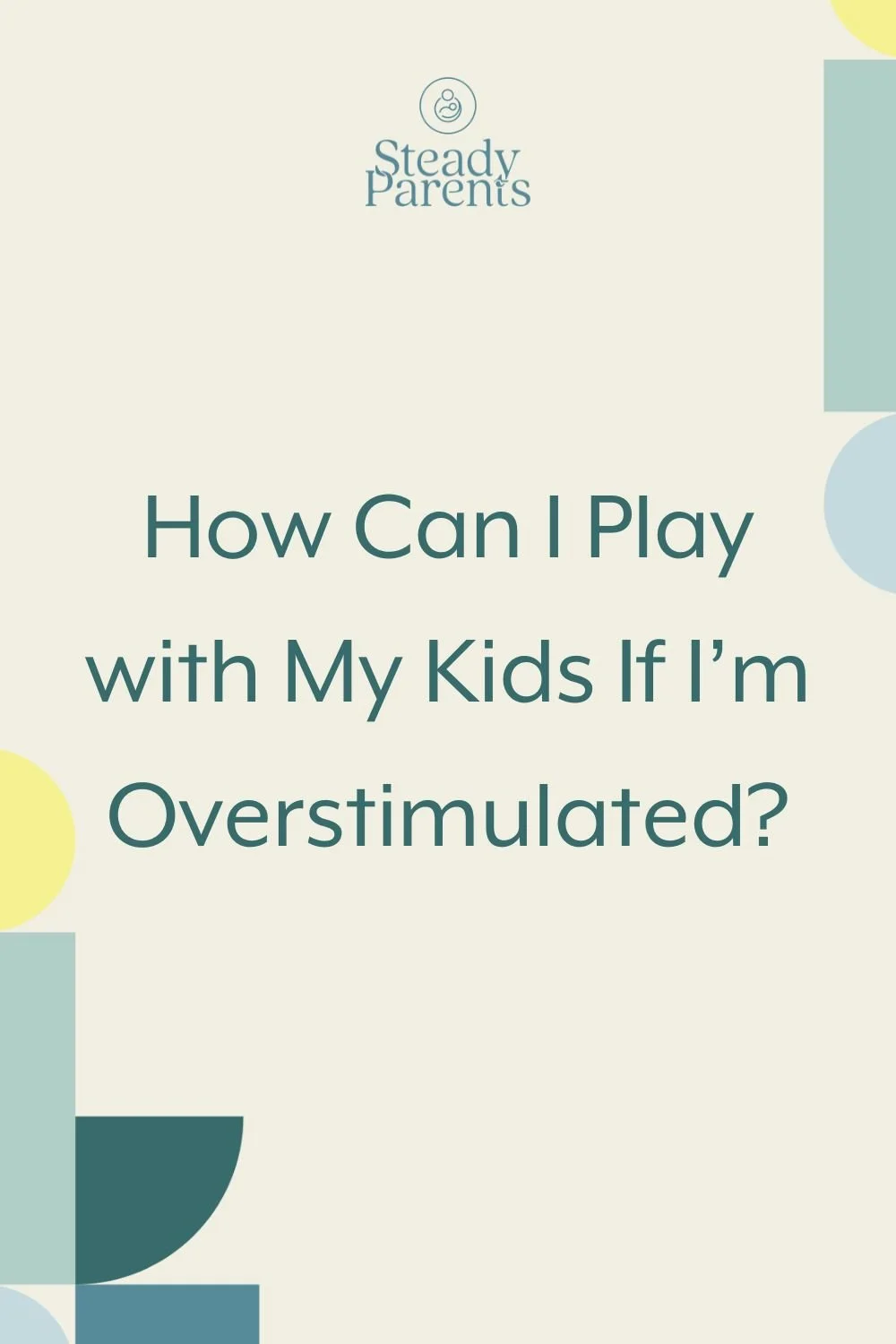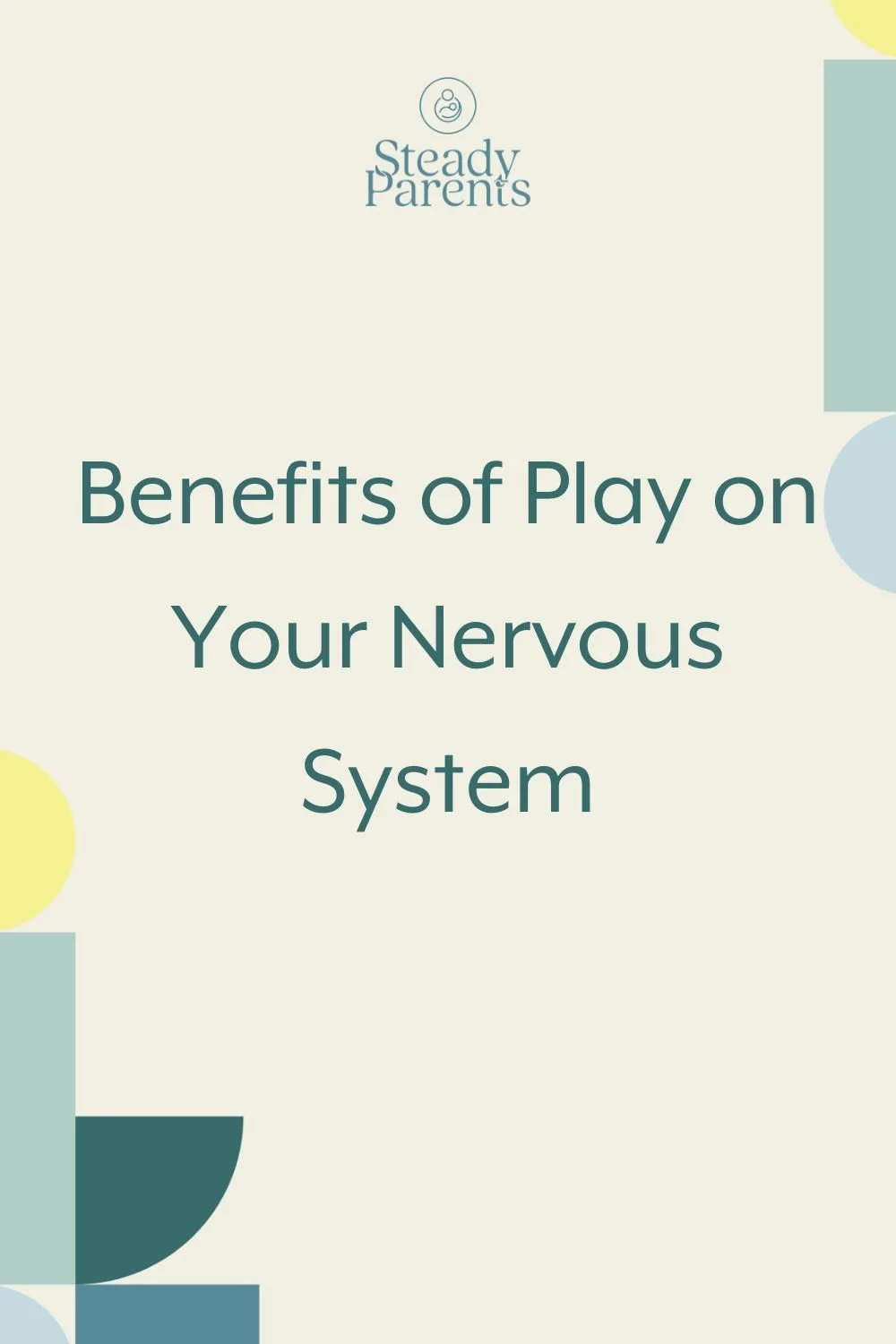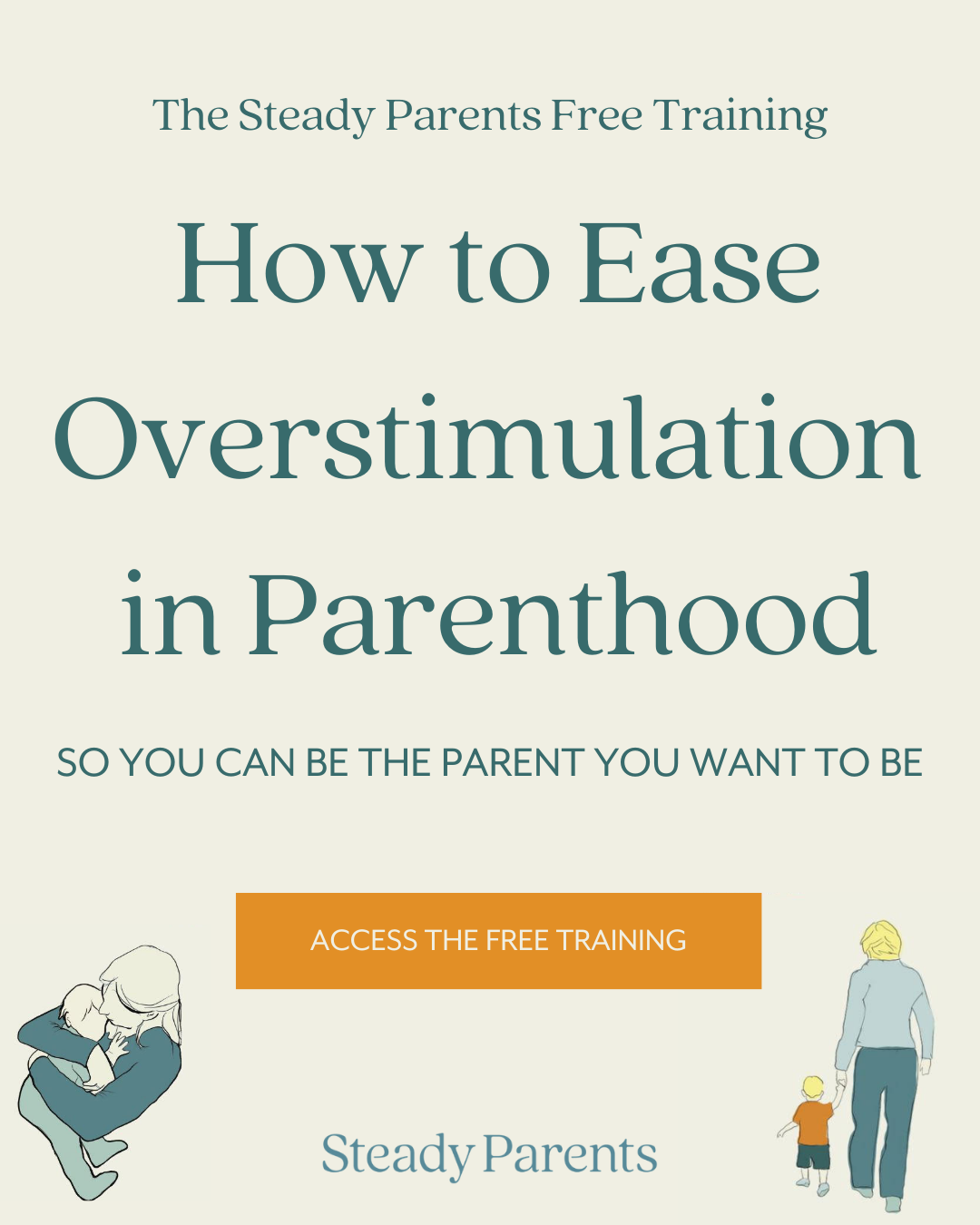How Can I Play with My Kids If I’m Overstimulated?
Are you an overstimulated parent who often feels overwhelmed by your child's invitations to play? Do you feel like you don't have enough focus or energy to engage in play? You're not alone!
Playing with your children can be a powerful way to connect and regulate your own emotions, but if your body is already dysregulated, it can be a challenge.
If you're looking for ways to make playing with your child a more enjoyable experience, read on to learn 3 tips on how you can engage in play without feeling drained.
How It Feels When Your Kids Keep Asking You to Play
“Mom, watch this!” “Dad, come play with me!!” “HEY GUYS COME HERE QUICK!!!!”
How do you feel reading those sentences? What happens in your body?
If you’re an overstimulated mom or parent, perhaps you feel a pit in your stomach. Perhaps your body starts to tense up. Perhaps you immediately start to feel annoyed.
But is that the bodily reaction you want to have when your child is inviting you to play? It’s certainly not what I want, although I do very much feel it much of the time.
So how do we shift from “Ugh okay I’ll be right there” to “Oh! I’m coming!!!” ? The first step is understanding WHY those invitations to play can be challenging.
What is attention shifting?
One of the reasons your body reacts the way it does to your child’s requests to play with them is that you’re probably in the middle of something else. Maybe you’re making dinner, maybe you’re scrolling on your phone, maybe you’re cleaning up some mystery spill on the carpet.
Whatever it is, that task is what has your attention (and your mind is likely thinking of a million other things as well). So when you’re focusing on one thing, and then someone calls for you, you need to be able to direct your attention from your task to the person in front of you.
This is a skill called shifting attention, and it is a complex cognitive process! Attention shifting is “the ability to flexibly shift back and forth between multiple tasks, operations, or mental sets” (Miyake et al., 2000).
Though attentional dysregulation is sometimes unavoidable, (like when you’re driving in the car with kids, for example) it can be overstimulating, and if you can’t easily get a hold on it, it’s possible that your constant state of overwhelm can lead to anxiety.
“If you switched up how you play, you can use play to connect with your children, and regulate yourself! ”
Benefits of Play on Your Nervous System
Another reason that play might be challenging is that you’re already dysregulated. You might be overstimulated or touched out, where any small noise feels like it stabs your ears or any touch feels like daggers into your skin. Or you could be under-stimulated, where you just can’t activate yourself enough to do anything.
When you’re dysregulated, it can feel impossible to play with your children. But, although it’s absolutely okay if you set a boundary and say no, sometimes you might want to say yes! Playing with your children can be regulating.
Play allows you to be in a neurologically safe space. It helps you achieve and maintain your optimal level of arousal (sweet spot of sensory regulation) to stay regulated and engage with your children joyfully.
Big affect (e.g., exaggerated facial expressions and silly voices), sensory input (e.g., movement), and shared joy (e.g., laughing together) all support this co-regulation experience, where you and your child come together and join in safety and engagement.
Of course, our children also benefit from play. Play helps them learn social skills and gain independence, confidence, coordination, and healthy coping strategies (NiDirect).
When it comes to using play as a way to help your own regulation as parents, you first need to revisit HOW you play.
Sitting down and playing imaginative floor or tabletop games can make it really challenging to focus. You're just sitting there, doing it "wrong," usually, and thinking of all of the other things that need to get done around the house.
Sitting down and playing on the floor can also make it difficult to engage in play because you aren’t getting the regulating sensory input your body needs.
But if you switched up how you play, you can use play to connect with your children, and regulate yourself!
I know, I know. Playing when you’re overstimulated is the LAST thing you want to do. But sometimes they REALLY want to play with you, and you’ve been checked out all day and haven’t had a chance to connect with them.
“Sensory-based play (especially body movement) helps support regulation and social engagement. It can be a very powerful way to connect. ”
Sensory-Based Play Ideas
Sensory-based play (especially body movement) helps support regulation and social engagement. It can be a very powerful way to connect.
Sensory play is any activity that helps stimulate a child’s senses. Often, we as parents feel the need to overcomplicate play or make every play experience an opportunity for direct learning.
We pull out flashcards or a book, ask our child to name their colors or count to 10. But what’s missing here is the sensory input that comes with some of the most basic play activities. Sensory play helps children develop connections between simple tasks to more complex tasks that they can apply to the real world.
Some examples of sensory play activities include:
Playdough
Sand
Swinging at a playground
Jumping
Balancing
Waterplay
Sorting
Many of these activities are free and can be done anywhere! So no need to feel like you need to run over to the nearest art supply stores to accomplish sensory play. Keep is simple (albeit sometimes messy!) and don’t overcomplicate things.
Tips for Playing When You’re Overstimulated
Do you ever feel like even a simple task like playing a board game is too much to handle when you’re feeling overwhelmed and overstimulated?
Besides participating in full-body and sensory play activities as mentioned above, here are 3 tips for playing while overstimulated:
Put your phone down. The constant shifting of attention makes playing so challenging. No need to add another distraction for your already racing mind - just put it down for 10 minutes. (No judgment here, I know it’s hard and I do it too!)
Don’t play games that involve light touch. Engage in WHOLE BODY play, NOT a “laying down” game where they touch you a lot (like hairdresser or doctor), which can make you feel touched out and (more) dysregulated. This might be dancing, it might be running away from the monsters, it might be gentle wrestling. These types of big movements will help regulate you, AND they’re a powerful way to connect with your kids.
Let them lead. You’ll probably play “wrong,” but honestly, who cares? Play is for them. It’s fine! Say “Whoops!” And lean in to their playfulness.
If the thought of playing with your children makes you cringe, I totally get it! Try these strategies, and do your best to lean into your child’s joy. Playfulness can be contagious, if you let it be.
PIN THIS FOR LATER:








